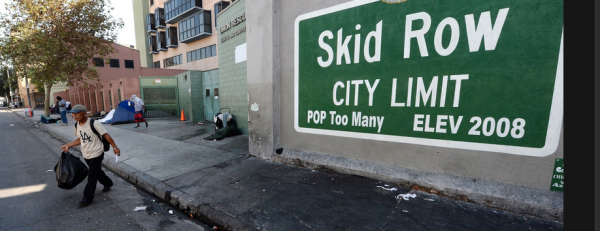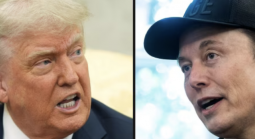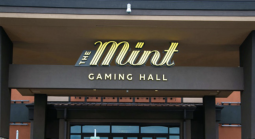Sports Betting Firms Use Helping the Homeless in Likely $100 Million Ad Spend to Woo California Voters
Last week, the American Gaming Association (AGA) sent out a letter to the U.S. Attorney General signed by around a dozen congresspeople requesting that he go after offshore sportsbooks for actually having the chutzpah to compete with state regulated sportsbooks. We trust AG Merrick Garland is as tired of seeing sports wagering ads from the so-called "legitimate" companies flooding the airwaves as we are. Not to mention, he has more pressing issues to be concerned with such as an attempted overthrow of the government and radicalization coupled with assault rifle mass shootings almost on a daily basis. Oh yeah, there's a fentanyl epidemic that's killing people left and right.
News flash: It was the offshore books that worked to get sports betting licensed and regulated in the U.S. for anyone who didn't get the memo. It's true that the AGA supported the effort that sought to have the Supreme Court overturn the Professional and Amateur Sports Protection Act, 28 U.S.C. § 3702 et seq. (PASPA), in its entirety, which the high court ultimately did in 2018. The AGA did not initiate New Jersey's years long effort to get PASPA abolished in the lower courts however.
Former New Jersey state senator Ray Lesnick, in fact, once lambasted the AGA for opposing his earlier sponsored bills looking to legalize sports betting.
The man, the myth.... Not you Thomas Somach. We are here with the Senator single handed my responsible for legalizing sports betting in the US. Live from @bet_bash pic.twitter.com/hvn99nPfNp
— gambling911 (@gambling911) August 26, 2021
“This is a case of casino owners putting the sports betting monopoly they enjoy in Las Vegas ahead of New Jersey’s economic well-being and competitiveness, pure and simple,” said Senator Lesniak, D-Union, and chair of the Senate Economic Growth Committee. “If Atlantic City is going to remain economically viable and a revenue generator for the southern part of our State, it has to offer new gaming products, including legalized sports wagering and online betting. The fact that New Jersey casino owners are standing in the way of Atlantic City’s economic recovery has more to do with the bottom line in Nevada than it does with concern for the Garden State and its residents.”
Remarkably the sports leagues got on board as well....not with Lesniak or his bill. In fact, they were doing everything in their power to prevent its passage. My how things have changed!
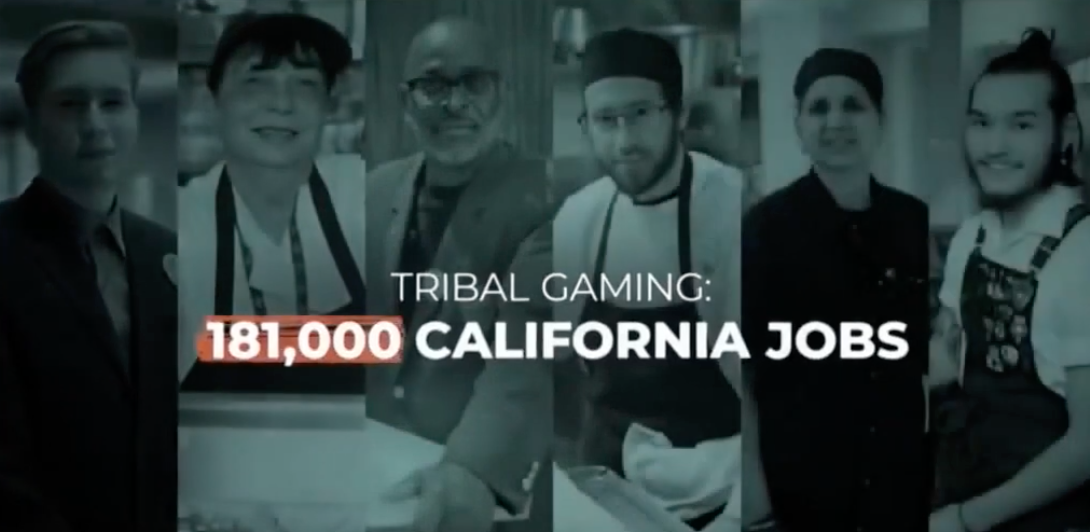
But now we've hit a new low.
In the nearly 30 years since offshore bookmakers have been in operation (the industry really exploded around 1996), at no time has an operator used homelessness as a means to try to draw attention and seek acceptance of their business platforms. Keep in mind, these are offshore books mostly operating in Costa Rica and the Dominican Republic, where poverty runs rampant. The industry has long been among the highest paying in Costa Rica in particular.
DraftKings has pulled the homeless card.
California tribes that support a retail-based sports betting measure that seeks to keep the activity on tribal land released a new video ad targeting DraftKings CEO Jason Robins. Funding for the ad came from these tribes:
San Manuel Band of Mission Indians
Rincon Band of Luiseño Indians
Pala Casino Spa Resort
And the ad calls out DraftKings and Robins.
The script for the ad read: “They call their California sports betting initiative ‘solutions for homelessness.’
“But DraftKings’ CEO recently went a little off-script, bragging to investors that the initiative has a tax rate set by the industry. Because, he chortled, ‘you can actually write the whole piece of legislation on the ballot, which is nice'."
Dueling sports betting ad campaigns ramping up in California https://t.co/f0f1nhK6nO via @YouTube
— gambling911 (@gambling911) July 6, 2022
The three tribes appear to be following the playbook of Florida's Seminoles to keep the likes of DraftKings out of the Sunshine State. The "Watchout Florida" ads - that at one point seemed to be airing after every other commercial - called out DraftKings as "outsiders" and warned Floridians not to sign petitions that claimed the mobile gambling proceeds would go towards funding education.
Both sides in California have pledged to spend at least $100 million on their individual campaigns to have sports betting legalized in the Golden State, whether it's on mobile devices or strictly in-person at the casinos.
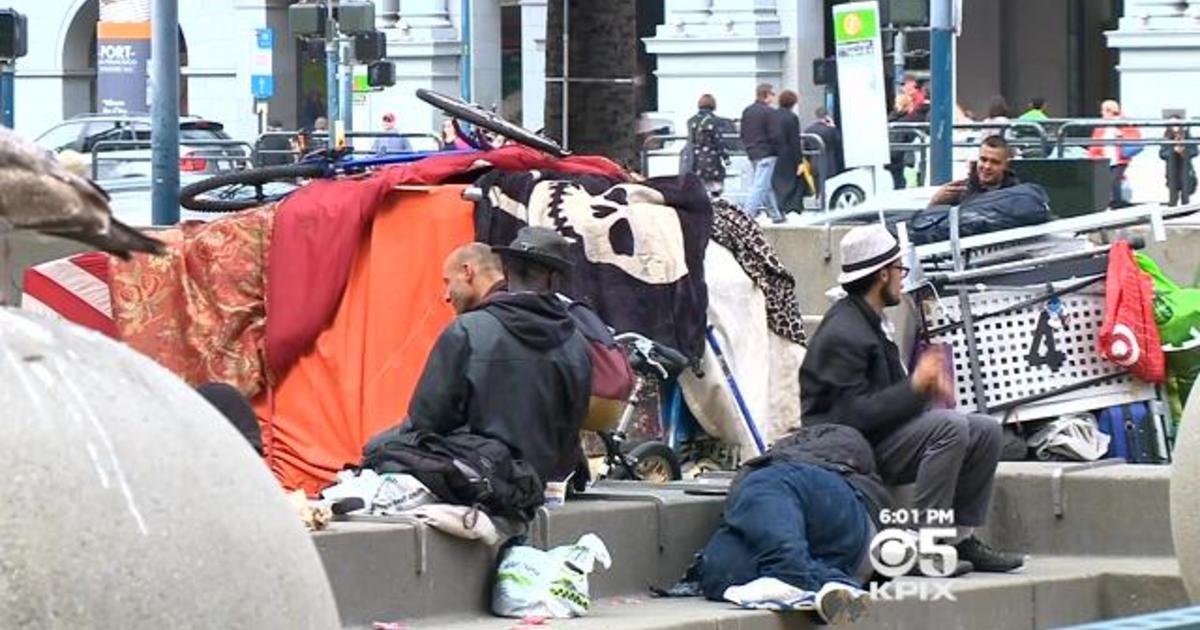
Many of the tribes argue that online betting would “break the promise” of tribal sovereignty as profits would go to outside companies while cannibalizing their own casinos. PokerStars tried and failed to get online poker legalized in California, a decade-long effort.
The tribes have also warned that turning mobile phones into virtual casinos will lead to out-of-control addiction, which in turn could result in homelessness. So, yes, there is a certain irony in the DraftKings initiative and messaging.
One U.S. state that can hardly be referred to as "prudish" when it comes to so-called "sin" industries, Colorado, is already considering ways to curtail sports betting advertisements.
The repetitive deluge, with trite slogans like "make it rain," will drive even the most zen person absolutely bonkers, wrote Conor McCormick-Cavanagh of Westword last September. He's a staff writer for Staff writer for Denver Westword.
"I thought that there was going to be at least some type of slowdown," the Democratic Speaker of the Colorado House of Representatives, Alec Garnett, said after sports betting was legalized in the state through a voter referendum.
Garnett was an early backer of the industry and supported the intiative. It just narrowly passed, an indication that nearly half the state's population will agree with his current position regarding how annoying these ads really are.
"I have seen a big uptick in the number of complaints from the public that we’ve been having about the amount of sportsbook advertising," Garnett remarked.
By February, Garnett was already contemplating measures to curb said advertising.
“I thought that the industry or the market itself would start to regulate itself,” he said.
An industry using the guise of helping to fund homelessness and education is not going to self-regulate itself. If you believe that, we have a bridge to sell you.
“Every legislator should be able to say that sometimes there are unintended consequences and you have to take responsibility for them and clean them up and that’s what I’m doing.”
“We’ve done it with marijuana, we’ve done it with tobacco, we’ve done it to certain degrees with alcohol. So, we need to be smart about going about this.”
In March, the NCAA did the responsible thing and refused to allow sports gambling companies to advertise during March Madness.

Californians will now be getting a taste of what sports betting ads flooding the airwaves looks like long before the activity is ever legalized, assuming it gets to that point. And there's a good chance voters will be so sick of the campaign ads, they'll vote against both ballot initiatives.
That's because billions will be pumped into these commercials. When all is said and done, residents of the state might be asking "Gavin Who?". Gavin Newsom is running for re-election as Governor and we here at Gambling911.com have the Over on the sports betting ballot initiatives ads running more than the "Newsom for Governor" spots.
Make no mistake about it, California is the prize. The state by itself represents the largest sub-national economy in the world.
"Really, this is more than the ‘Thrilla in Manila,’ if you think what this is going to be like," said Sonoma State political science professor David McCuan. "These two ballot measures will probably set records."
Proposition 26 is also called the "Tribal Sports Wagering Act" and is backed by a coalition of dozens of Native American tribes. It would legalize in-person sports betting at tribal casinos and four horse racetracks including Golden Gate Fields for people 21 and older.
This group says that a portion of monies taken in will go towards fighting gambling addiction, a widely acceptable industry standard.
The state’s independent Legislative Analyst’s Office estimates this measure could generate tens of millions of dollars each year for the state.
"It will bring money to the state of California; it also will help tribes continue the self-sufficiency and stewardship they’ve maintained for 20 years," said Kathy Fairbanks, a spokesperson for the Tribal Act.
"California Solutions to Homelessness and Mental Health Act" is the other initiative, a la DraftKings and a few other outside gambling interests. The name alone is a bit condescending and pegs California voters as idiots, something they are not. Seriously, the first thing most of us think of when it comes to compulsive gamblers is an individual who is going to lose their home courtesy of their gambling addiction. Most won't, thankfully, but nobody except the people running DraftKings will see a ballot referendum entitled "California Solutions to Homelessness and Mental Health Act" and think to themselves "oh, wow, legalizing sports wagering is going to help our homeless problem".
Gaming companies must partner with a tribe, and pay a $100 million licensing fee and a $10 million renewal fee every five years. 85% of the tax dollars would go towards homelessness services, while 15% goes towards tribes not involved in online sports betting, presumably those who are pushing for that other ballot initiative.
85% is actually somewhere in the neiborhood of 7%. DraftKings and the gang get around 90%. That's because the California tax where these resources are coming from is only 10% of the revenues taken in. Compare that with a state like New York or Pennsylvania where it's 35% to 50% and maybe more.
Labor leader Dolores Huerta recently put her backing behind the in-person measure. She called the online initiative "misguided and dangerous."
"It doesn’t offer enough protections to ensure with a 100% certainty that kids under 21 aren’t gambling," contended Fairbanks.
Nathan Click, spokesperson for the online gaming initiative, fired back.
"Those are simply false attacks. Look at the experience of 23 other states that have legalized online sports betting, they’re proving you can do so, safely and responsibly."
Yes, look at what early backers in Colorado are now saying.
The tribes overwhelmingly support the in-person initiative, for now at least. That number is around 60, but the Middletown Rancheria of Pomo Indians and the Big Valley Rancheria Band of Pomo Indians have joined forces with DraftKings and the gang.
In case you are keeping score, these are the tribes that previously supported an outside gambling company, PokerStars, efforts to legalize online poker in California: Morongo Band of Mission Indians and San Manuel Band of Mission Indians, and to some extent later on, Pala Band of Mission Indians, The United Auburn Indian Community and Rincon Band of Luiseno Indians.
Those opposed to PokerStars entry, and presumably would take a similar stance against the likes of a DraftKings or FanDuel, were Agua Caliente Band of Cahuilla Indians, Barona Band of Mission Indians, Habematolel Pomo of Upper Lake, Lytton Band of Pomo Indians, Pechanga Band of Luiseno Indians, Sycuan Band of the Kumeyaay Nation, Table Mountain Rancheria, Viejas Band of Kumeyaay Indians and the Yocha Dehe Wintun Nation.
Ultimately voters will decide and could even opt to approve or, as previously noted, reject both measures.
A statewide ballot measure can be approved by a majority vote of the people.
Approval of both would likely result in extended legal action as the two measures contradict one another.
Should both pass and the tribal measure passes by a higher margin, legal action would be likely as the tribes could contend the two measures are in conflict. The DraftKings backed measure is claiming explicitly not to be in conflict while the "Tribal Sports Wagering Act" makes no mention of a conflict.
If a conflict can be shown, the measure passed with the higher margin of ‘yes’ votes goes into effect and the other does not, per California’s constitution.
- Chris Costigan, Gambling911.com Publisher









